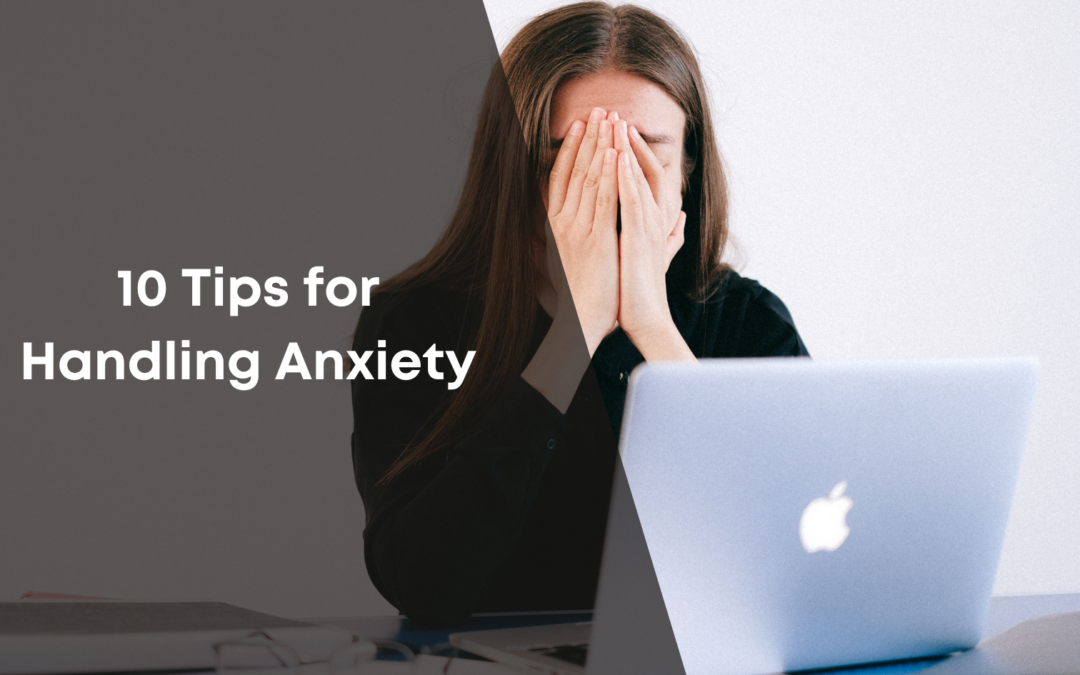Anxiety has a way of sneaking into our lives and taking over when we least expect it. Maybe it’s the never-ending to-do list, a major life change, or the feeling that you’re constantly juggling more than you can handle. Have you ever found yourself lying awake at night, heart racing, wondering how to calm your mind and feel in control again? If so, you’re not alone. Anxiety is one of the most common challenges people face today—but it doesn’t have to run your life.
The Problem of Anxiety
Anxiety often feels like a three-headed monster, showing up in ways that are overwhelming and difficult to untangle.
On the surface, life’s demands—work deadlines, family responsibilities, and unexpected challenges—pile up, leaving you stretched too thin and constantly on edge. Beneath it all, anxiety whispers doubts, making you question yourself. You might think, “Why can’t I handle this like everyone else seems to?” or find yourself stuck in an exhausting loop of overthinking.
Even worse, anxiety steals from you—your joy, your connection with others, and your ability to focus. Life isn’t meant to feel like a constant state of worry; it should be balanced and fulfilling.
Here’s the good news: it doesn’t have to stay this way. Effective, research-backed strategies can help you take back control and find relief.
10 Tips for Handling Anxiety
After 30+ years of helping individuals navigate life’s toughest moments, I’ve seen firsthand how anxiety can hold people back. My name is Steven Unruh, and I’ve dedicated my career to helping people find calm and clarity when life feels overwhelming. While anxiety may feel impossible to manage, there are simple, actionable steps you can take today to feel more in control. Let’s dive into 10 practical tips to handle your anxiety.
1. Focus on Your Breathing
Deep breathing is one of the simplest and most effective ways to calm your mind. Research shows that diaphragmatic breathing (breathing deeply into your belly) can activate your parasympathetic nervous system, which helps you relax.
- Try this: Breathe in for a count of four, hold for four, and exhale for a count of six. Repeat this for a few minutes whenever you feel anxious.
2. Limit Caffeine and Sugar
While that extra cup of coffee or sweet treat might feel comforting in the moment, caffeine and sugar can increase feelings of anxiety by overstimulating your nervous system.
- Swap out coffee for herbal tea or water, and opt for snacks like nuts or fruit to maintain steady energy levels.
3. Move Your Body
Physical activity is a proven stress reliever. Exercise releases endorphins, which are your body’s natural mood elevators, and helps clear your mind.
- Even a 10-minute walk outside can make a big difference. Aim for activities you enjoy, like dancing, yoga, or swimming, to make it sustainable.
4. Practice Mindfulness
Mindfulness is the practice of being present in the moment without judgment. It’s been shown to reduce anxiety and improve overall well-being.
- Start small: Spend five minutes noticing your surroundings, focusing on what you see, hear, and feel. Apps like Calm or Headspace can also guide you through mindfulness exercises.
5. Get Enough Sleep
Poor sleep can worsen anxiety, creating a vicious cycle. Prioritize a consistent sleep routine to help your body and mind recharge.
- Try this: Create a calming bedtime routine, avoid screens an hour before bed, and aim for 7-9 hours of sleep each night.
6. Challenge Negative Thoughts
Anxiety often comes with a flood of “what ifs” and worst-case scenarios. Recognize when these thoughts creep in and challenge them with facts.
- Ask yourself: “Is this thought true? Is there another way to look at this situation?”
7. Set Realistic Goals
Feeling overwhelmed? Break your tasks into smaller, manageable steps. Completing even one small goal can help you regain a sense of control.
- Tip: Write down three things you want to accomplish each day and focus on just those.
8. Connect with Others
Anxiety can make you feel isolated, but reaching out to friends or loved ones can provide comfort and perspective.
- Share your feelings with someone you trust, or consider joining a support group to connect with others who understand what you’re going through.
9. Limit News and Social Media
Constant exposure to negative news or social comparisons can fuel anxiety. Take breaks from your devices and focus on what truly matters to you.
- Try setting screen time limits or scheduling “no phone” hours during your day.
10. Seek Professional Support
Sometimes, managing anxiety on your own can feel like an uphill battle. Therapy or counseling can provide tools and strategies tailored to your needs.
- Don’t wait until it feels unbearable—asking for help is a sign of strength, not weakness.
Take Action Today
It’s easy to think, “I’ve tried everything, and nothing works for me,” but change takes time and consistency. These tips aren’t about quick fixes—they’re about creating habits that reduce anxiety over the long term. Even implementing one or two of these strategies can make a noticeable difference.
Imagine waking up tomorrow feeling lighter, calmer, and more in control of your life. It’s possible to break free from anxiety’s grip and rediscover peace. Start by choosing one tip from this list and putting it into practice today.
If you’re ready to go further, reach out for professional support. With over three decades of experience helping people navigate life’s challenges, I’m here to help you find a path forward. Don’t wait—take the first step toward calm and clarity.


Recent Comments